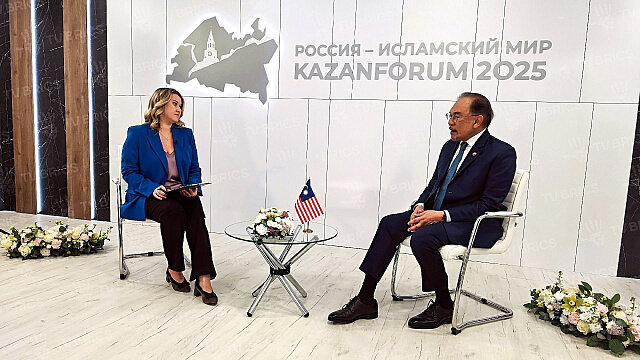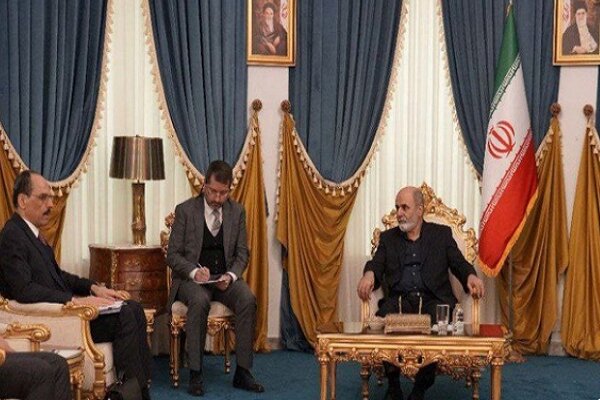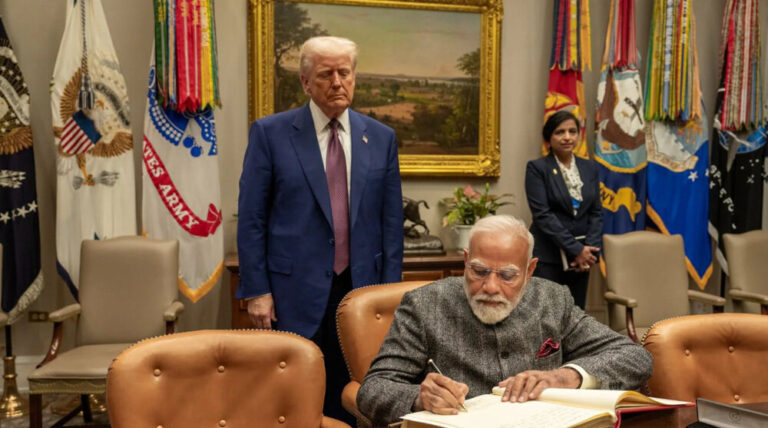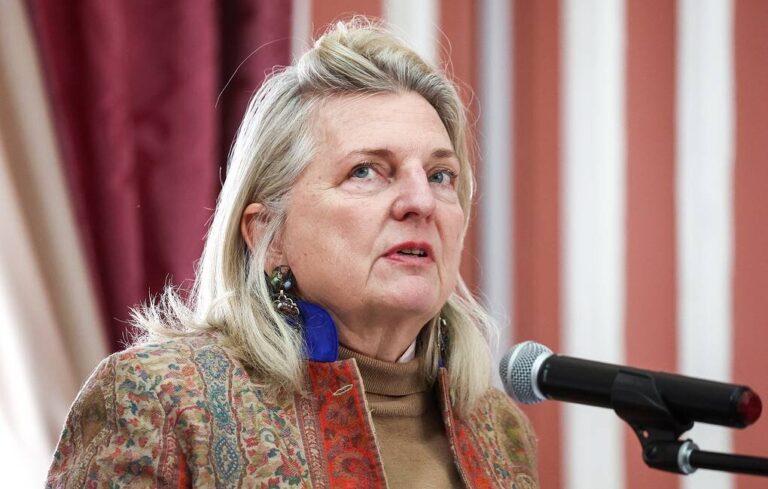Malaysian PM Highlights BRICS as a Game-Changer for the Global South Initiative
The Malaysian Prime Minister, Anwar Ibrahim, recently discussed the nation’s economic strategies and regional collaboration in an exclusive interview with Darya Ivankova, the director of TV BRICS International Cooperation Department. This dialogue highlights Malaysia’s aspirations following its status as a BRICS partner country in 2025 and outlines the opportunities this partnership presents for both BRICS and Malaysia.
In the context of Malaysia’s new role, Prime Minister Ibrahim emphasized that “Malaysia is a trading nation. ASEAN takes its position of centrality, which means we should engage with all countries.” He elaborated on how BRICS symbolizes a cohesive force within the Global South, indicating a commitment to mutual support and collaboration among member nations.
Economic Development Priorities
When asked about Malaysia’s primary economic development goals, the Prime Minister mentioned several key areas:
- Digital Transformation: Malaysia is focusing heavily on advancing its digital infrastructure, which includes significant investments in data centers and artificial intelligence (AI).
- Energy Transition: The nation is making strides in energy diversification, collaborating with ASEAN neighbors to implement a regional power grid that enhances energy sharing.
- Food Security: Strengthening resilience in food security through partnerships with countries like Russia, China, and Brazil is also a top priority.
“Right now, there is a focus on digital transformation, connectivity, and massive investments in data centres and AI,” the Prime Minister stated, emphasizing Malaysia’s emerging role as a regional hub for semiconductors and technology.
Digital Initiatives and Investments
In line with the nation’s digital transformation agenda, Ibrahim pointed out the importance of clear policies and strategic frameworks. He mentioned the National Semiconductor Strategy, which has successfully attracted substantial investments from global tech giants like Google, Microsoft, and NVIDIA, along with Infineon from Germany. This investment influx aims to enhance efficiency and attract more talent to Malaysia’s burgeoning tech sector.
Financial Sector Transformation
The Prime Minister also addressed potential transformations in the financial sector. He noted initiatives like the Chiang Mai Initiative, which promotes regional collaboration among central banks to facilitate local currency transactions. “For example, now with Thailand, Indonesia, and China, targeting 20 per cent of trade transactions in local currencies – representing billions of dollars,” he explained. This effort aims to mitigate dependence on the US dollar and safeguard national interests.
Free Trade Agreements and Economic Resilience
Malaysia’s economic resilience is further supported by free trade agreements, including one with the United Arab Emirates, a BRICS member. “A free trade agreement is, of course, a very practical and effective mechanism which is put in place to ensure that we can have a free flow of goods and products,” he said, highlighting the importance of trade within the Global South.
ASEAN Chairmanship and Regional Focus
In 2025, Malaysia will also serve as the ASEAN Chair, focusing on several key issues during its tenure:
- Hosting the ASEAN meeting to address economic matters alongside the Persian Gulf Cooperation Council.
- Engaging with East Asian economies, India, Australia, New Zealand, and the United States at the annual Heads of Government meeting.
These gatherings will emphasize economic fundamentals and multilateral cooperation, reinforcing Malaysia’s commitment to regional collaboration.
Sustainable Development Goals (SDGs)
Malaysia and ASEAN members are committed to achieving the Sustainable Development Goals (SDGs). Prime Minister Ibrahim noted that while economic growth is crucial, environmental sustainability is equally important. “The power grid is an alternative energy source – hydro and gas – that would then link the region,” he stated, underscoring the shift toward renewable energy sources.
Climate Change and Environmental Policies
In response to climate change, Malaysia is taking proactive measures to protect its environment, with over 52 percent of its land still covered in virgin forests. The Prime Minister expressed the need for developed countries to honor their commitments to support developing nations in environmental protection initiatives. “We can make a lot of money now just by selling off the timber, but we don’t. We want to protect our heritage and the environment,” he remarked.
Cultural Exchange and Human Development
Despite facing global challenges, Malaysia values cultural exchanges, as exemplified by the International Women’s Association of Malaysia. The Prime Minister emphasized the importance of these cultural initiatives, saying, “Development and progress aren’t purely economic. We’re also talking about human development, values, justice, and peace.”
He acknowledged the pivotal role of women in various sectors, emphasizing that their contributions extend beyond traditional roles to encompass public health, environmental protection, and governance.
In conclusion, Malaysia’s strategic initiatives within the BRICS framework and its commitment to ASEAN underscore its dedication to fostering economic growth, environmental sustainability, and cultural exchange in the region.
(Source: TV BRICS)






